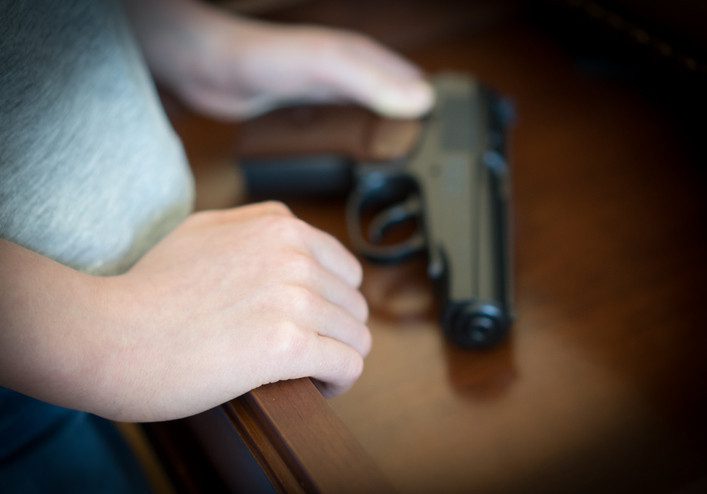All of us can lower the odds of unintentional shootings.
Guns hurt and kill; it’s a simple fact. And while most gun injuries and deaths are the result of an assault or suicide, unintentional injuries happen all the time, including to children and between them. In the six-year span between January 1, 2015, and December 31, 2020, there were at least 2,070 unintentional shootings by children under 18 years old, resulting in 765 deaths and 1,366 injuries, according to Everytown Research and Policy.
If you’re a parent — or even if you’re not — you can help reduce the odds of an accidental shooting in several ways.
Why is it important to talk about gun safety with children?
Children are naturally curious, and guns are ubiquitous in the media and video games that children see all the time. Many don’t really understand how dangerous guns can be, and most don’t know how to tell if a gun is loaded.
According to the Pew Research Center, three in 10 in Americans own a gun, and four in 10 live in a household with one. So it’s not surprising that 34% of children in the US live in a home with at least one firearm. While it is recommended that guns be stored locked, with ammunition locked separately, less than half of US families with both children and guns actually do this.
What steps can parents take around gun safety?
If you have a gun and you have a child in your home, please lock up the gun, and lock up the ammunition separately. And make sure that your child doesn’t know how to unlock either or both. Children know more than most adults realize.
If your child plays at the homes of other children, you need to think — and ask — about gun safety. Many people feel uncomfortable asking; they worry that asking could be seen as an invasion of privacy, or as being judgmental. But it’s not either one. It’s simple safety.
The best way to do it is to make it routine, and make it part of other questions you should ask before sending your child to someone else’s home. You might say: “Hey, I have some questions I always ask before sending my child somewhere, just being safe.” Then, you could ask things like:
- “Who will be home with them, and how do you handle supervision?”
- “Do you have a pool?” (If yes, more questions about safety and supervision are important.)
- “Does anybody smoke?” (This is particularly important if your child has asthma or other breathing issues.)
- “Do you have pets?” (This is important for allergies, if your child is afraid of animals, and to find out if there are any animals that might be aggressive.)
- “Does anyone have allergies?” (So that your child doesn’t bring any foods that might cause problems.)
There may be other questions you ask based on your situation. As for guns, the question you should ask is:
- “Do you have an unlocked gun in your home?”
If the answer is yes, you have options. You can either ask them to please lock it up (and ask more questions about supervision), or if you’re not sure the family can or will lock it up, say, “I am so sorry, but I won’t be able to send my child to your home.” Be matter-of-fact and pleasant. If it’s a playdate, you can offer to have it at your home, or to take the children somewhere else like a local park.
They may be surprised or offended, sure. But that’s a risk worth taking to protect your child’s safety, and maybe even their life.
Source by www.health.harvard.edu


